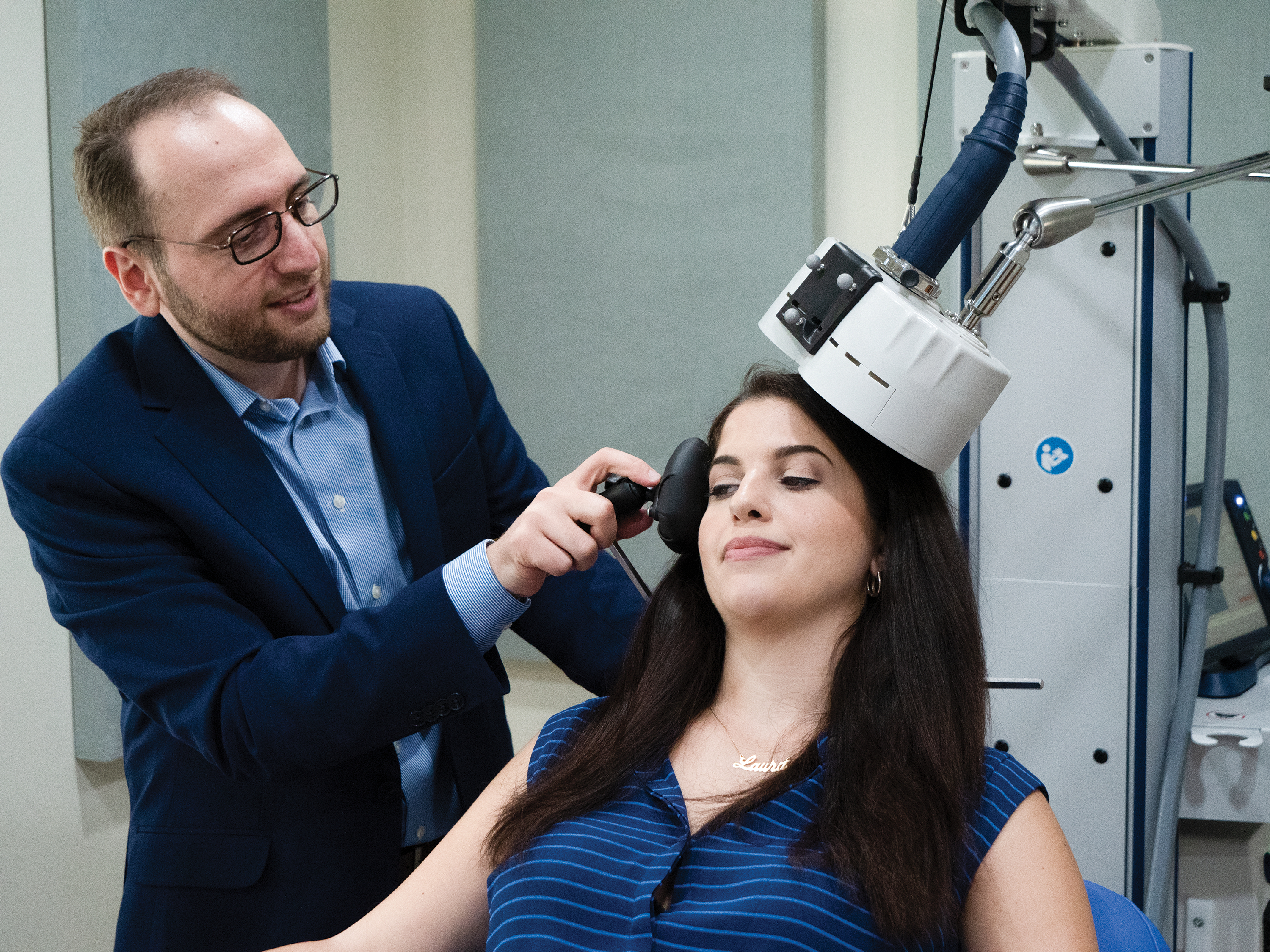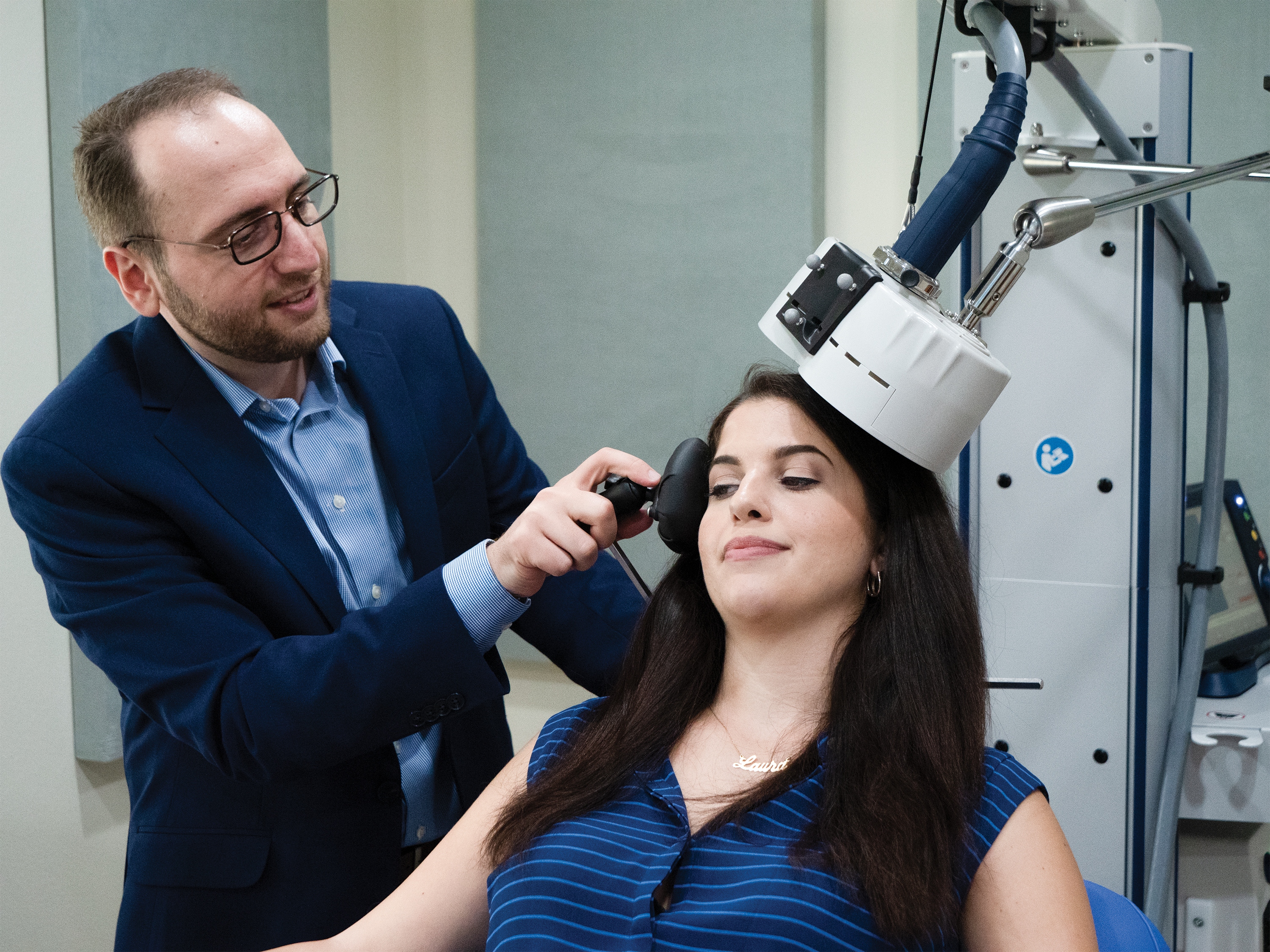
“I think you owe it to yourself to learn a little bit more about TMS and see if it’s the right next step for you, your happiness and your quality of life. It is the most important thing people should be thinking about and cannot just postpone. We have to get better and we have to get better now.”
Dr Khaled Bowarshi is the owner and Medical Director of the Florida TMS Clinic at Wesley Chapel in Tampa Florida and a member of both the American Psychiatric Association and the Clinical TMS Society. Dr Bowarshi is one of only twenty dual-trained physicians in both Internal Medicine and Psychiatry graduating from WVU Charleston in 2010. Training in both disciplines gives him an exceptional and deeper understanding of the direct connection between physical and mental health, something which is often overlooked by medical professionals specialising in just one aspect of medical care. Dr Bowarshi offers a whole, holistic approach to the impact of mental health issues on both your mind and your body whilst being informed by your own unique set of circumstances. Amongst many achievements, Dr Bowarshi received the Outstanding Educator Award for excellence in Clinical Teaching; served as Chief Resident Physician for both medicine/psychiatry and categorical psychiatry concurrently; Clinical Instructor training other physicians and medical students; Inpatient psychiatrist at the Medical Centre of Trinity, Florida and serving as a physician council member-elect. He completed his fellowship TMS trading at Duke University in 2019 with the aim of making cutting edge TMS therapy available to the residents of Tampa Florida by opening The Florida TMS Clinic. His clinic offers the only accelerated, navigated Transcranial Magnetic Stimulation treatment (TMS) in the Tampa Bay Area. TMS is a highly effective, fast and alternative treatment to depression and other associated disorders without the need for any medication or drugs.
What did you want to be when you grew up and why?
I wasn’t really sure. Of course on my top list I wanted to be a doctor. But also at some point I wanted to be a teacher. I found that you can’t be a good doctor without being an excellent teacher to leave an impact on patients’ lives and well being.
Name a book that changed your life and why?
My inspirational books are in a different language. But as far as western books go, I like the work of Nassim Nicholas Taleb in the book The Black Swan. Somehow it helped me go over the obstacles of going against the norms in establishing my practice.
Who is your biggest inspiration and why?
My inspirational character is from a different culture. But, as far as a western inspirational figure, I like how Elon Musk thinks. I particularly like his ambition in his new project NeuraLink. It is refreshing to know that someone can see the potential of neuromodulation on a mass scale.
When did you first become interested in medicine?
I had to wear eyeglasses when I was in third grade. When my grandmother saw me wearing glasses she called Doctor Khaled! 🙂
What drew you to study as a doctor?
I think the fact that you can actually change people’s lives and leave an impact.
Why did you choose both medicine and psychiatry?
This unique combination of two specialties empowers me to see mental illness and physical illness in a unique cohesiveness.
Would you describe yourself as passionate about mental health recovery and why?
I strongly believe that mental health is the next biggest crisis that is facing humanity in the next few decades. I can’t see any other field of practice that is as powerful in impacting people’s life as much as mental health. I particularly see how technology affected the human race mental well being. I am very passionate about utilizing good medical technology to battle bad technology’s effect on our mental health. TMS and neuromodulation gives me the perfect tool to do so.
Have you ever personally experienced mental health issues?
Not yet! Or maybe I just have a poor insight into it! 😉
What frustrates you?
Two things bother me in my practice on day to day basis:
- Insurances putting profit ahead of doing what’s right for the patient.
- The general false belief that mental health care is a luxury rather than a medical necessity. It pains me everytime I hear someone calling TMS a “Spa” or when I see so many colleagues in the mental health field refuse to take insurance and only treat patients who can pay cash!
How do you deal with failure?
I don’t call it failure, I call it “presuccess attempts”. And I have a lot of prescucess attempts. I do something called “root cause analysis” to find out where the weaknesses are. I correct them. I put a deadline to when I will review it again. I stick to the plan and repeat.
What gives you a sense of fulfilment?
Knowing that I added value!
You are clearly passionate about Transcranial Magnetic stimulation, why?
I am very passionate about utilizing good medical technology to battle bad technology’s effect on our mental health. TMS and neuromodulation gives me the perfect tool to do so. TMS is the future of mental health treatments.
How do you protect your staff and yourself from mental health stress as an inevitable part of your service provision?
We talk! This job is very stressful sometimes. We hear a lot of people crying. We see people at their lowest moments in their lives. We always remind ourselves of how depressed someone was when they came to us and how well they are doing by the time they finish their TMS treatment.
In an ideal world, what would be your overall ambition for mental health recovery?
To make mental health care and particularly TMS available to everyone who needs it. To make TMS more effective, more efficient and more practical.
What charities do you support and why?
We currently support Radiant Hands. A non-profit charity organization supporting single women and refugees. We take one TMS pro bono case a month ~$7000 value from any charity organization that reaches out to us.


